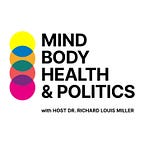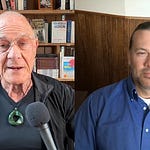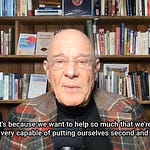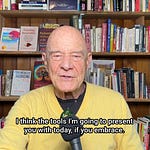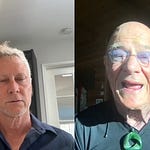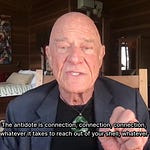Dear Friends,
I’m delighted to share my fascinating conversation with Ethan Nadelmann, an old friend and leading thinker and advocate for progressive drug policy reform.
Ethan and I go way back. I took LSD in the 1960s and saw its therapeutic potential, prompting me to get involved in this critical issue. I also witnessed the benefits of MDMA therapy firsthand when it was still legal. Given these experiences, I served on the board of the Marijuana Policy Project, hoping to form a coalition with groups like the Drug Policy Alliance that Ethan later founded.
In fact, I hosted a fundraiser at my home over 20 years ago where Ethan and I first connected. The District Attorney came to show his support, but couldn’t be seen around cannabis - quite a different time! Ethan has been an invaluable ally as we’ve worked to shift drug policies from a criminal justice framework toward a public health approach over the decades since.
Our wide-ranging discussion traces the evolution of drug policy reform and Ethan’s pivotal role within it. A few highlights truly stood out as worth sharing:
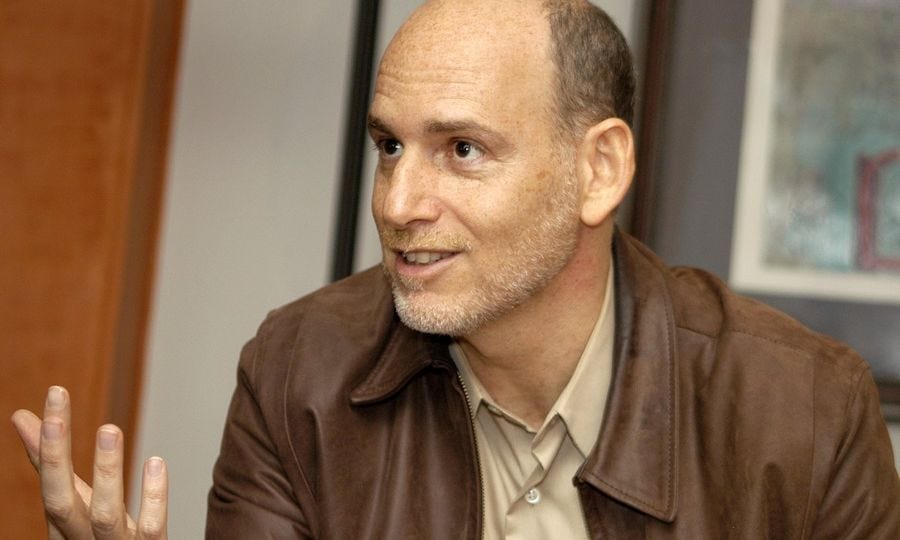
First, Ethan articulates a compelling case that drug prohibition infringes upon our fundamental right to freedom of consciousness. As he notes, our identity as a free society rests upon pillars like freedom of speech, press, religion, and assembly. But what good are these without an underlying right to ingest what we choose, to explore and alter our own consciousness? Ethan argues this freedom of consumption deserves protection too, so long as we don’t directly harm others in exercising it.
Second, Ethan chronicles the substantial progress advocacy has achieved, especially around cannabis. When we started this work, marijuana was squarely within the War on Drugs. Now 18 states have legalized adult use, medical marijuana is permitted in 38 states, and public opinion has shifted dramatically. Ethan details this sea change, while acknowledging work remains on other drug issues. But the landscape today would be unrecognizable just 15 years ago.
Finally, Ethan highlights rapid advances in psychedelic research, with promising therapies using MDMA and psilocybin underway. Top universities now have dedicated psychedelic research centers thanks to pioneering work by groups like MAPS. And pioneering states like Oregon have voted to decriminalize possession of all drugs to shift policy away from incarceration. Ethan's contagious optimism about the future is balanced by emphasizing the need for responsibility as access expands.
Please subscribe and share this episode if it sparks new perspectives. Together, we can advance social change rooted in science, compassion, and human rights.
Golden light,
Dr. Richard Louis Miller
Watch the video:
Show notes:
Introduction to mind body health and politics. 0:00
Introduction to mind body health and politics.
Why community is the healthiest way to live.
The importance of being politically aware.
The history of the Lindesmith Foundation.
A brief history of the Drug Policy Alliance. 4:27
The history of the drug policy alliance.
The origins of the Linda Smith center.
Three major areas of advocacy.
Treating drug use as a health issue, not a criminal issue.
A constitutional right to consume what we see fit. 9:08
The history of the first amendment bill of rights.
The importance of freedom of consciousness.
The ultimate objective of the drug policy reform movement.
The decriminalization of sex work.
Key arguments against the war on drugs. 18:48
Key arguments against the war on drugs.
Drug prohibitionist approach to drugs.
The evolution of the drug war.
Marijuana legalization in 2023.
The White House’s call from the White House. 25:28
Dr maria rosenbaum, head of the drug policy alliance.
Dr david murray and the white house.
David murray, john walters and william bennett.
John walters, drug testing and medical marijuana.
We don’t win drug policy reform until we persuade the public. 29:23
The key people in the middle are the key people.
Marijuana is now fully legal.
Why the feds are typically the last ones to change.
The bigger part of the problem.
Where do we stand in the legalization of psychedelics? 33:23
Decryption and legalization of psychedelic substances.
Ketamine and psilocybin in the us and europe.
The future of psychedelic research.
The decriminalization of psychedelics in the US.
How to get the media to report on psychedelics. 37:38
The future of psychedelics in Canada and Europe.
The dangers of taking psychedelics.
Proposing the decriminalization of psychedelic plants and fungi.
The lowest priority marijuana referendum.
What is the national movement for legalization? 41:54
Organizing a national movement for the oregon and colorado initiatives.
Podcasting a podcast.
Darren aronofsky and iheart radio launch psychoactive podcast.
The drug wars in russia and the Philippines.
Taking a break from radio. 46:35
Taking a break from podcasting for 80 episodes in 80 weeks.
Taking a two year break from internet radio.
Thanking Richard for being an ally.
Next drug policy alliance conference in Arizona.
Marijuana Policy Project vs. Dpa. 52:14
Links and references:
Drug Policy Alliance - Ethan's organization
Marijuana Policy Project (MPP) - organization Richard served on board of
MAPS - Multidisciplinary Association for Psychedelic Studies
Psychoactive podcast - Ethan's podcast
Darren Aronofsky - Director who collaborated with Ethan
Plant Medicine Coalition - national psychedelics reform organization
Decriminalize Nature - psychedelics reform organization
David Murray - Former White House drug policy advisor
John Walters - Former drug czar under Bush
William Bennett - First national drug czar under Bush Sr.
Nora Volkow - Director of National Institute on Drug Abuse
Rick Perry - Former Texas governor supporting psychedelic research
NOTE: The podcast is always freely available thanks to our paid subscribers. Please share this post to show your support for transparency. The following transcript distills the key points from this show into a condensed form. It is meant as a reference - listen to the full episode for an accurate rendition of the conversation.
Transcript
Drug Policy Reform Advocacy (00:41 - 09:18)
Dr. Richard Miller: Ethan, shall we give a little history of the Drug Policy Alliance and what it stands for, as a way of introducing our talk?
Ethan Nadelmann: Sure, Richard. I mean, although I can say from me personally, my background in this area of advocacy and writing and speaking really goes back to the late 1980s. It was the height of the drug war in the late 1980s. And I had just finished a dissertation on the internationalization of Drug Enforcement. And I started teaching at Princeton, and I published an article in Foreign Policy magazine, a prestigious publication, in early 1988. Basically saying the whole war on drugs is just like alcohol prohibition, that prohibiting drugs is doing more harm than drug abuse itself, that even though legalizing all drugs may not be the answer, we at least need to understand how prohibition itself was a fundamental part of the problem, and look at other ways of dealing with drugs and controlling and regulating drugs grounded in science, compassion, health and human rights.
So I started speaking in the late 80s, got involved with the new Drug Policy Foundation that Arnold Trebach and Kevin Zeese had started. And then in the early 90s, I had the good fortune to get a call from George Soros, who at that point was not very well known, but he was a wealthy philanthropist who had focused on Central and Eastern Europe and the former Soviet Union.
And, communism had fallen in fascinating but unexpected ways, and open societies were breaking out everywhere. Soros was asking himself the question, Well, I've always assumed America is the model of an open society, but in what ways is it not? One of the first things that hit him between the eyes was the war on drugs. So he invited me to lunch, and we hit it off.
One thing led to another and I left Princeton, started the Lindesmith Center, named after Alfred Lindesmith, the first distinguished American academic to challenge conventional thinking about drug policy, and then built that up over six years as part of his foundation.
Then in 2000, the Drug Policy Foundation had fallen on hard times, so we absorbed it into the Lindesmith Center and created the Drug Policy Alliance. I ran that, until 2017, six years ago when I stepped down.
But I think the key elements for you to appreciate about our work - the first one is that we focused on three major areas in our advocacy. One third of our work focused on ending cannabis prohibition, first with legalization of medical marijuana, then with reducing marijuana arrests and decriminalizing possession, and ultimately, legally regulating cannabis for all adults. That was the part that got the greatest amount of media attention.
The second third of our work was ending the role of the war on drugs in mass incarceration. That meant getting rid of mandatory minimum drug sentences, providing alternatives to incarceration - all of those things that were affecting America becoming the most incarcerated country in the world. We tried to roll back the drug war piece of mass incarceration from the 80s to the 2000s.
The last third of our work was basically making a serious commitment to treating drug use and addiction as a health issue, not a criminal issue. This began with a focus on needle exchange programs and access to sterile syringes, to reduce the spread of HIV/AIDS.
It then expanded to overdose prevention and teaching Americans about European cutting edge approaches to dealing with drug use, addiction and street crime - with the work of Marsha Rosenbaum. She pioneered our drug education program with her “Safety First” model at the Drug Policy Alliance.
Those were the three big areas of work. We did this with public education, sometimes litigation and amicus briefs in the courts. Most especially, we worked on legislative reform in state legislatures and occasionally Congress, along with ballot initiatives beginning with the medical marijuana initiative in California in 1996.
During my period this continued with treatment instead of incarceration initiatives, asset forfeiture reform and other initiatives, then culminated with marijuana legalization initiatives in California and other states in 2016.
Above all, we devoted attention, about 10 percent, internationally as well to help allies and advocates around the world advance drug policy reform in their own countries. I'll pause there, but this gives an overview of our work to advance more rational, compassionate drug policies since the hysterical height of the drug war in the late 1980s.


